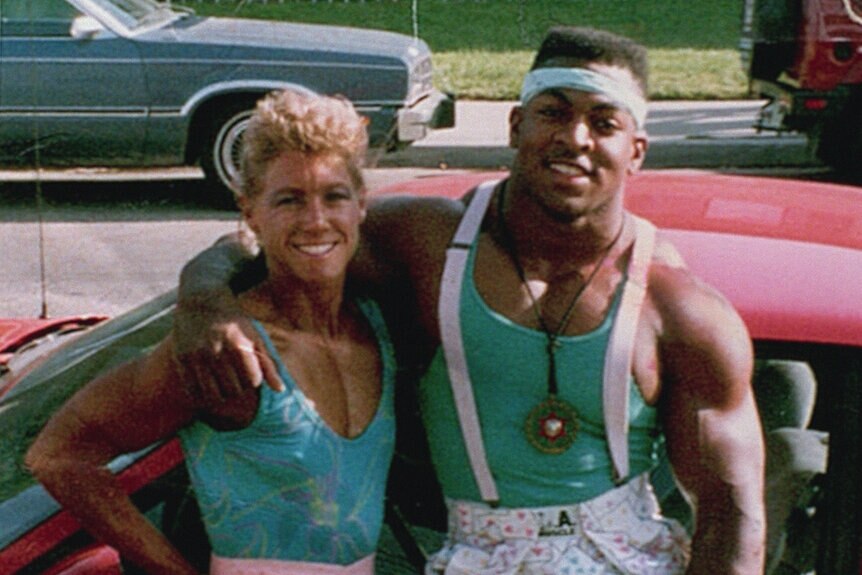Create a free profile to get unlimited access to exclusive videos, breaking news, sweepstakes, and more!
'Killer Sally' Filmmaker Wants To Bring Awareness To Nuances Of Intimate Partner Violence
"Killer Sally" director Nanette Burstein reexamines Sally McNeil's 1995 killing of her fellow bodybuilder husband Ray McNeil, who allegedly abused the former Marine.

Bodybuilder Sally McNeil’s fictional identity “Killer Sally” soured her chances of being believed as a credible intimate partner violence victim during a time when “bad girls” were at the forefront of tabloid headlines.
This is the hypothesis at the center of Netflix’s newest docuseries “Killer Sally,” which revisits the 1995 Valentine’s Day killing of Ray McNeil, a national bodybuilding champion and Sally’s husband.
In the aftermath of his death on Feb. 14, 1995, Sally claimed that she shot him twice with a shotgun in self-defense after he choked her during a steroid-induced rage. In the three-part docuseries, Sally and her two children allege that McNeil regularly abused her and that she was in fear for her life.
But director Nanette Burstein suggested in an interview with Oxygen.com that this defense proved difficult for her because the ex-Marine did not fit what the director said was the mold of a “perfect victim.” Described in tabloids as the “brawny bride” and “pumped-up princess,” Sally was incredibly muscular and had her own history of violence and steroid use. What's more, she often wrestled under the stage name “Killer Sally,” a character who typically posed with a gun and bullets.
“This hurt her both in the media as well as in the trial it was brought up in, even though it was the silly stage name and had nothing to do with her propensity towards violence,” Burstein told Oxygen.com in a phone interview.
A poster of Sally in character was even brought into the courtroom, with the docuseries suggesting that it ruined Sally's chances of acquittal. A jury found her guilty of second-degree murder in 1996 and she was subsequently sentenced to 19 years to life. She was not released until 2020.
Burstein told Oxygen.com that the series’ producers wanted to examine Ray’s murder and Sally’s case following the “reckoning of women in the #MeToo era.”
The series notes that Sally was convicted at a time when women like Lorena Bobbitt and Amy Fisher were treated as black-and-white characters in the tabloids. Their cases have since been reexamined with a more nuanced eye and a better understanding of domestic violence.
Burstein, who also directed an ESPN “30 for 30” film on figure skater Tonya Harding, suggested that “Sally was picked apart by the media because she was a bodybuilder.”
“Sally, by no means, is the perfect victim either and that's what makes this story so complex,” she said. “We hope for perfect victims and when they're not perfect, we get angry, but nobody's perfect, especially in situations of domestic abuse.”
Burstein noted that the weight of the “Killer Sally” character in Sally’s case is an example of how many victims of domestic abuse and sexual violence are treated when they speak out against their abuser.
“Anything about them, that can poke holes in their credibility, or pretend that they're violent or slutty or this or that [...makes it…] so hard in these cases to defend yourself,” she said.
Burstein told Oxygen.com that she hopes that viewers come away with the desire to rethink the judicial system in reference to domestic violence.
“I also want people to think about how we view gender and gender roles and how we judge if women are brawny, for example. Are they thought to be potentially more violent, or that they can't be victims of violence?” she emphasized.


























